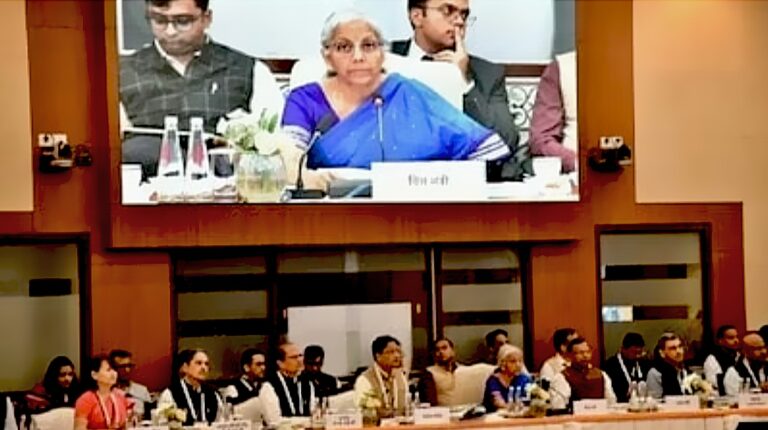Introduction
The 56th meeting of the Goods and Services Tax (GST) Council, held on 3–4 September 2025 under the chairpersonship of Union Finance Minister Nirmala Sitharaman, marked one of the most significant overhauls of India’s indirect tax regime since its inception in 2017. The Council not only rationalised GST rates by merging multiple slabs into a simplified structure but also introduced a special higher slab for sin and luxury goods. Alongside these rate changes, several key recommendations were made to streamline compliance, improve refund mechanisms, and enhance ease of doing business. These reforms are expected to benefit consumers, MSMEs, and the broader economy, while states have flagged concerns over potential revenue shortfalls.
1. Major Simplification: Two New Tax Slabs
- The Council has unanimously approved the removal of the existing 12% and 28% GST slabs. Going forward, only two GST rates will remain:
- 5% – for essential everyday goods.
- 18% – for general non-essential items.
- A special 40% slab has also been introduced for “sin” and luxury goods (e.g., tobacco, pan masala, aerated sugar-based drinks) to deter consumption and address health concerns.
2. Effective Date
- The new tax regime will come into effect on September 22, 2025.
- Sin goods will remain under existing GST and compensation cess until relevant loan and interest obligations are fully cleared; a transition date for these will be decided later.
3. What Gets Cheaper
- Items seeing a rate reduction to 5%:
- Personal care: hair oil, shampoo, toothpaste, soaps, etc.
- Household goods: tableware, kitchenware, bicycles, and more.
- Food items like namkeens, pasta, sauces, butter, ghee, instant noodles, preserved meats.
- Essential staples: UHT milk, paneer, all Indian breads—now at nil GST.
- Goods moved to 18%:
- Consumer durables: air conditioners, TVs, dishwashers.
- Small diesel cars (≤1500 cc, ≤4000 mm length), two-wheelers under 350 cc, ambulances, three-wheelers, auto parts.
4. What Gets Costlier
- 40% GST imposed on:
- Tobacco products: cigars, cigarettes, bidis, etc.
- Aerated and sweetened beverages.
5. Broader Impact
- The overhaul is expected to significantly benefit consumers, especially the middle class, farmers, MSMEs, and small businesses, by reducing GST on essential goods and simplifying compliance.
- Estimated revenue loss for the government stands at around ₹47,700–48,000 crore, as noted by officials.
- States, particularly those ruled by the opposition, flagged concerns about revenue shortfalls and called for compensation mechanisms.
Key Policy & Rule Recommendations (Beyond Rate Changes)
1. Phased Implementation for Sin Goods
- The Council has recommended a phased rollout for goods like pan masala, gutkha, cigarettes, unmanufactured tobacco, and bidis. These will retain the existing GST rates and compensation cess until compensation cess-related loans and interest obligations are fully settled. A further order from the Finance Minister will determine when they transition to the revised rates.
2. Risk-Based Provisional Refunds
- To address inverted duty structures, the Council approved 90% provisional refunds under a risk-based mechanism—modeled after processes used for zero-rated supplies. CBIC will begin implementing this administratively, pending required amendments to the CGST Act, 2017.
3. Ease-of-Business Enhancements (Process Reforms)
- The meeting recommended procedural reforms to facilitate trade and ease business operations—specifically around GST registration, refunds, and other compliance processes. Although some details are high-level in the summary, the reform intention is clear.
Summary: Recommendations vs. Rate Changes
| Category | What Was Approved / Recommended |
|---|---|
| New Tax Structure | Adopt two GST slabs (5% and 18%) and a special 40% slab for sin/luxury goods. |
| Sin Goods Phase-In | Maintain old tax and cess until compensation loans are cleared; date for change TBD by Council Chair. |
| Refund Mechanism | Enable 90% provisional refunds via a risk-based system to address inverted duty situations. |
| Procedural Reforms | Simplify processes for registration, refunds, and compliance to improve ease-of-doing-business. |
